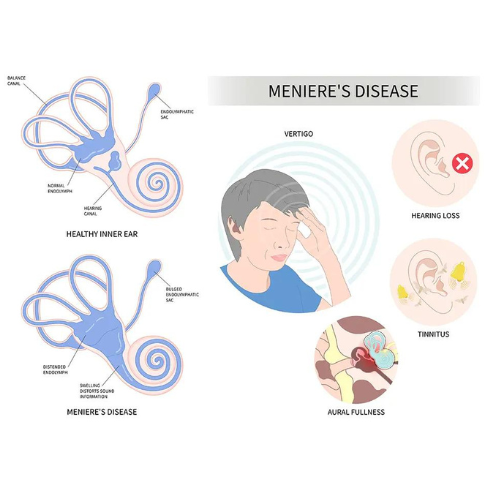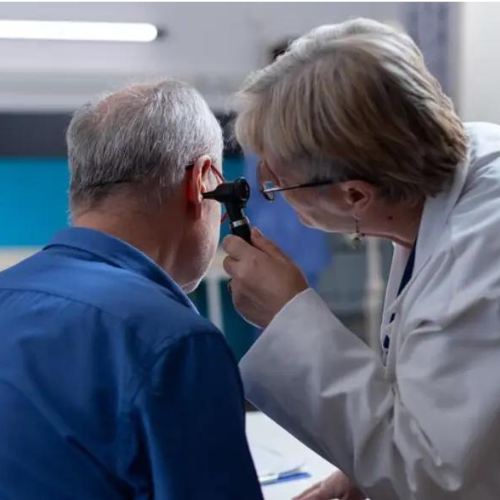Comprehending the Symptoms & Causes of Meniere’s Disease
When we grow up, our bodies begin to change in numerous ways, such as how we speak and how tall we are. However, one of these changes could affect us in a big way: how we hear through our ears. Numerous diseases out there can affect our ears and impair our hearing forever. One of these diseases is Meniere’s disease, a chronic inner ear disease with the possibility of making it so that there is a range of symptoms involving tinnitus, vertigo, hearing loss, and emotions of fullness within the ear. This kind of condition can worsen and be very tricky to treat. In this article, we’ll be talking about Meniere’s disease’s symptoms and available treatment options that can be utilized.
The Symptoms of Meniere’s disease
There are a few symptoms of Meniere’s disease that you should know about to ensure that if you ever see these symptoms in a person, you’ll know what disease is ailing the person and help them accordingly.
Tinnitus:
Tinnitus refers to the sensation or feeling of buzzing or ringing within the affected ear that might arrive, go away as time proceeds, or persist.


Hearing Loss
If conditions that affect your ear persist, they could result in hearing loss. Fluctuating hearing loss often occurs at lower frequencies at the beginning and progresses to higher frequencies over time.
Ear Fullness
The feeling of your ear is full of something on the inside, like feeling there is water trapped within the ear.
Vertigo
Vertigo is when you experience episodes of intense dizziness or spinning emotions that might last for a few minutes to an hour or more. It is often accompanied by nausea and vomiting.
What Causes Meniere’s Disease?
The exact reason Meniere’s disease occurs in people’s ears is unknown at the time of writing. Still, the mechanism supposedly results from an abnormal amount of fluid entrapment within the ear, leading to transformations within disturbances and pressure in hearing & balance. Factors such as allergies, autoimmune disorders, environmental aspects, viral infections, and genetics might take a toll on your ear and lead to the development of Meniere’s disease.
How is a Diagnosis Created?
Diagnosis is created by physicians who assess the duration, severity, and frequency of vertigo episodes accompanied by changes in hearing and the presence of ear fullness or tinnitus. Balance evaluations (electronystagmography), electrocochleography (ECoG), hearing tests (audiometry), and imaging studies (MRI or CT) might be conducted to confirm that the patient has contracted Meniere’s disease.


How can the Meniere’s disease be treated?
Conservative management of Meniere’s disease involves creating changes to your diet (low salt diet), changing how you live (stress management), and vestibular rehabilitation therapy. It is also recommended to take Anti-vertigo medications (such as meclizine) as they may assist you in severe vertigo episodes. There have been numerous times when diuretics have been utilized to minimize fluctuations in corticosteroids and inner ear fluid volume, which may help people affected by Meniere’s disease alleviate fluid buildup and acute vertigo. Injections can also be taken to the middle ear space, referred to as Intratympanic Injections, as they can control the symptoms of Meniere’s disease. Although there have been studies created by scientists using alternative medicine as a cure for Meniere’s disease, there has yet to be any conclusive evidence displaying the effectiveness of acupressure, acupuncture, or herbal supplements. Ensure that you inform your doctor that you have been performing alternative methods to cure this ailment if you are, since they sometimes might influence the effectiveness or safety of conventional medicines.
When should Surgery Be Considered for Meniere’s Disease?
Surgery is only considered an option when non-surgical treatments happen to be ineffective. There are numerous aspects to consider, including how long the symptoms last, how frequent they are, and how intense the vertigo episodes happen; each is regarded before doctors recommend a patient to go through surgery. There are procedures such as endolymphatic sac decompression, labyrinthectomy, vestibular neurectomy, or eighth nerve section that may be taken into account for symptom control & relief.
Why should you engage the Services of Dr. Najam’s Cochlear Implant Centre?
Since numerous clinics are available, we especially recommend Dr. Najam’s Cochlear Implant Centre. This clinic offers their patients appointments with audiologists to decide whether they should get cochlear implants or hearing aids to assist them in their hearing. They also use numerous innovative techniques and utilize the best equipment available to ensure their patients receive the best hearing care services. Their clinic is located in Karachi, Pakistan, and they can provide specialized patient care. They will also be able to assist you in dealing with Meniere’s disease.
